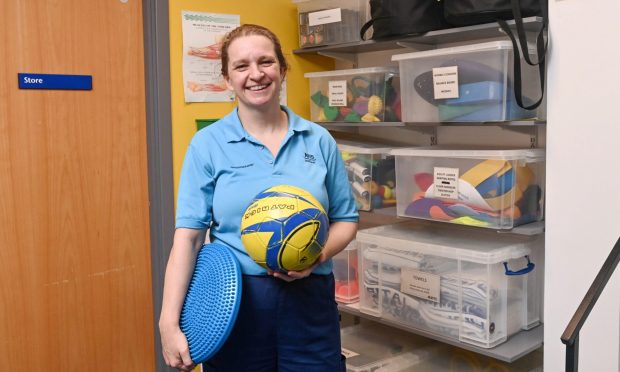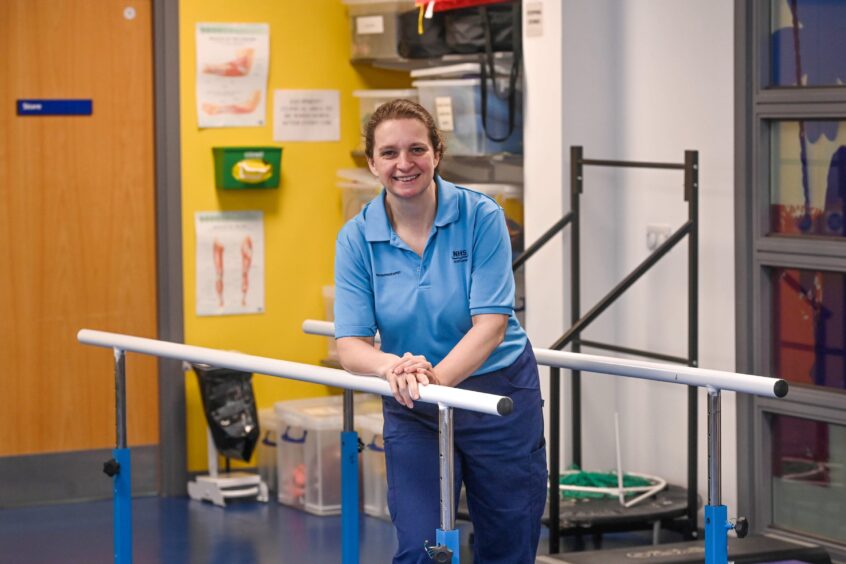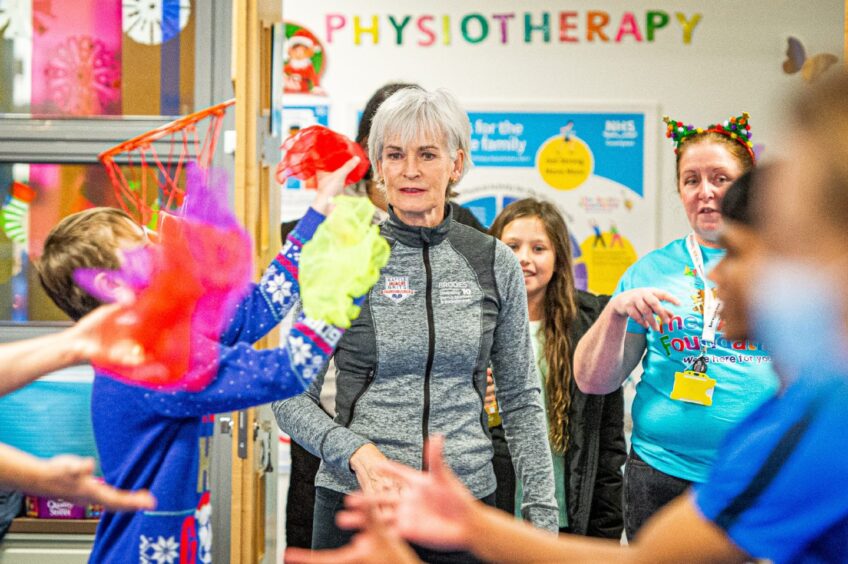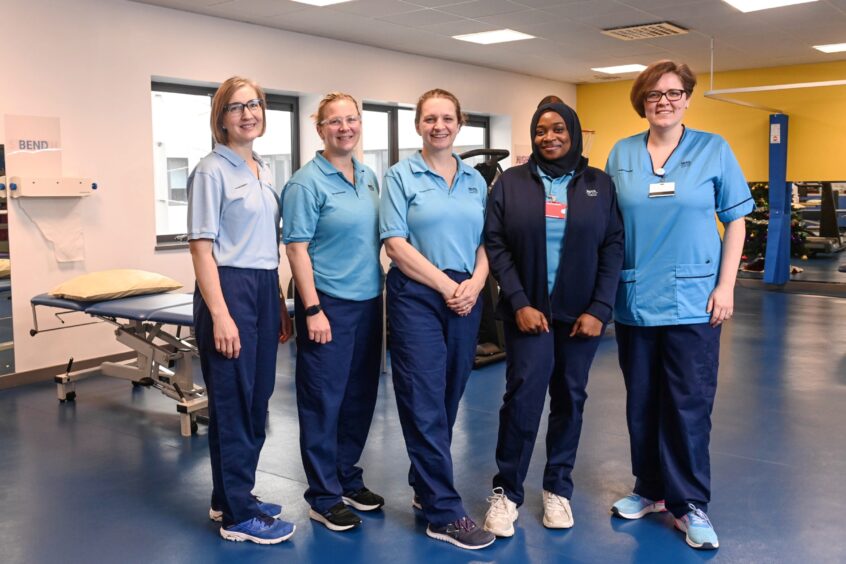Every Friday at 11am, Alison Bain welcomes a gaggle of children into the gymnasium at the Royal Aberdeen Children’s Hospital (RACH).
She calls the one-hour session ‘Fit Friday’ and although Alison is the lead paediatric physiotherapist at RACH, the children who come are not just those in her care.
Instead it is open to any young patient who fancies cutting loose for 60 minutes, shaking off the confines of the hospital and having fun.
“They’re in hospital and they’re stuck in their rooms,” says Alison, who has worked at RACH for 25 years. “This is just a way we’ve brought in to try to change that.”
Fit Friday was launched two years ago — by way of a tennis lesson with Judy Murray — and every week has children playing around on agility ladders, balance-building wobble cushions, exercise bikes and other mobility boosters.
But it also neatly sums up the ethos Alison and the physio team at RACH have when it comes to working with their young charges – whatever you do, make it fun.
“Instead of giving someone 10 of these exercises, 10 of these exercises and 10 of these exercises, I’ve found myself over the last few years, making a 10-minute or 20-minute Spotify playlist,” Alison explains.
“I then get them to work through to the end of the playlist and stop. So we try, without even thinking now, to make it more fun.”
She adds: “Children can have a lot of anxiety when they face physio. But once they get over the initial anxiety, they tend to rehab and get better much quicker than adults.”
Movement is also something children need more of in the era of smart phones and mobile screens.
“We see a lot adolescents with back pain, for example, because they’re inactive and they’ve got poor posture,” Alison says.
“So one of our goals will be to reduce screen time.”
A physio phone line for concerned parents
Fit Friday is not the only innovation RACH has adopted on Alison’s watch.
Originally from Enniskillen in Northern Ireland, she started working at the hospital in 1999 after graduating as a physiotherapist from Aberdeen’s Robert Gordon University.
A few years ago, she helped set up a paediatric physiotherapy advice line that anyone – parents, health professionals, GPs or health visitors – can call if they have any questions that need an expert answer.
“A parent can phone and say, ‘Oh, I’m really worried because my child’s got this sore knee’,” Alison says of the line that she occasionally mans herself.
“And we can say, well, actually, yes. You maybe should come and see a physiotherapist.”
For Alison, the advice line is a success because of the commitment from the whole team at RACH, which treats more than 18,500 children every year.
She says: “We have a great team. They are dynamic, they are fun. I don’t think there’s a day that goes past that they don’t make me smile.”
What it means to be a Royal Aberdeen Children’s Hospital physio
The patients also make her happy, and are the reason she has worked with children for almost her whole career.
“I’ll get a really great young athlete who’s not able to do whatever they want to do because they’ve had an injury, and I’ll be able to support them through their diagnosis and their journey back to sport,” she says. “Who wouldn’t want to do that?”
Away from sports injuries, she also helps children in major car accidents learn to walk again, bringing relief to parents who may assume the worst.
And because Alison has been at RACH for more than two decades, she’s now starting to see patients who are the children of former charges.
Not that it makes her feel old.
“It’s going to happen,” she says, laughing. “I’m not going anywhere else, I’m going to be here now for the long haul. So, yeah, it’ll happen again, I’m sure.”
The Royal Aberdeen Children’s Hospital’s Children and Young Person’s Physiotherapy Advice Line is available at 01224 559877 on Wednesdays from 1pm to 3pm and Fridays from 11am to 1pm.




Conversation